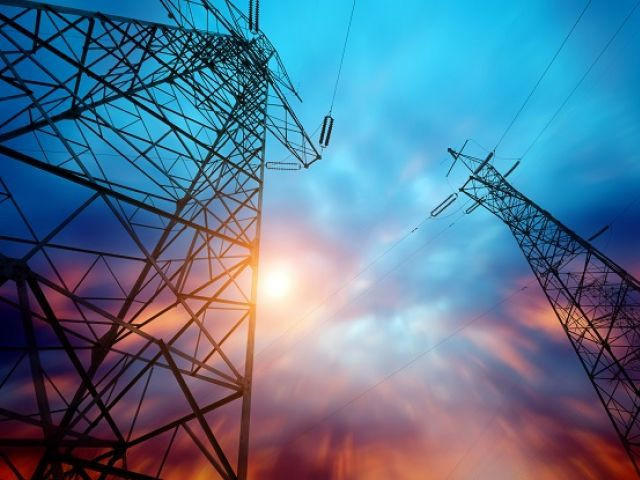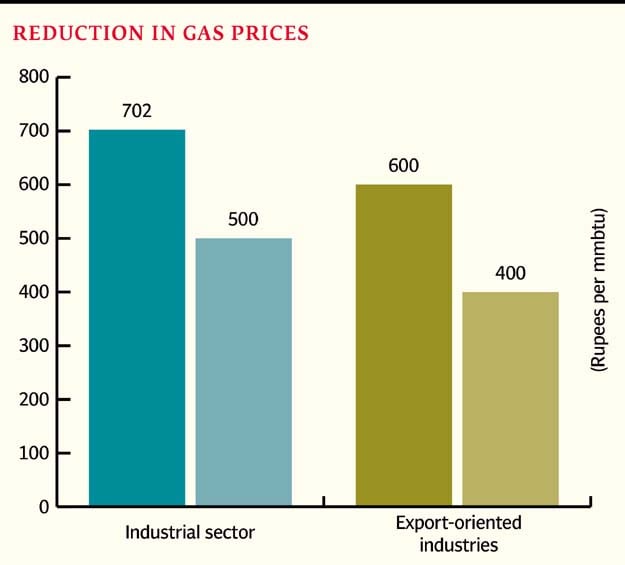Govt waives Rs50b off Sindh’s electricity bill
Also cuts gas prices for industrial sector by up to 33%, decision will not affect revenue

Also cuts gas prices for industrial sector by up to 33%, decision will not affect revenue. PHOTO: REUTERS
The Economic Coordination Committee (ECC) of the Cabinet took these far-reaching but populist decisions, which will help neutralise various agitating lobbies at a time when the federal government faces numerous challenges. The federal government has written off 40% of the total amount that it had billed to electricity consumers of two government-owned power distribution companies for the period of July 2010 to July 2016.
This Pakistani device claims to slash power bills by 25%
Gas prices relief
The ECC decided to pass on the benefit of reduction in energy prices to only industrial consumers. Domestic and commercial consumers have been denied these benefits.
The ECC reduced the gas prices for the influential industrial sector from Rs702 per mmbtu including GST to Rs500 - a reduction of 28.8%. This will help make the industries competitive, which were fast losing their edge due to high cost of doing business.
The benefit for the five-export oriented industries will be far higher than this, as exports are exempted from paying 17% sales tax. The reduction for the export-oriented industries will be 33.3%, as their gas prices will come down from Rs600 per mmbtu to Rs400 per mmbtu.
However, despite reduction in prices, the government’s tax revenues would not be affected, as it has changed the tax structure to protect its revenue. As against the current practice of charging 17% GST on the volume of gas, the government has now fixed the rate of GST on each unit of gas at Rs100. This tax is equivalent to 25% of the new price, which is higher than the standard 17%.

Effectively, this will reduce the tax burden by Rs2 per unit, as at 17% the industries were paying Rs102 in GST on each mmbtu they consumed. Had the government not fixed the GST at Rs100 per mmbtu, the Rs200 per mmbtu reduction in prices would have adversely affected GST collection to the extent of Rs34 per mmbtu.
The government has also protected 17% guaranteed rate of returns of the two gas distribution companies - Sui Northern Gas Pipelines Limited and Sui Southern Gas Company Limited. However, the decision to reduce the prices would affect the province revenues. As per current practice, the earnings over and above 17% rate of return go to the federating units on account of Gas Development Surcharge.
This Pakistani device claims to slash power bills by 25%
A Ministry of Finance handout stated that in accordance with the Fertilizer Policy 2001, the Industrial Sector gas sale price will also be applicable to the fertiliser sector only for fuel stock.
The industrial sector had been demanding a relief package, as the growth in Large Scale Manufacturing stood at only 2.2% during the first quarter of this fiscal year as against the target of 6%.
Sindh relief package
The ECC also waived off Rs50 billion outstanding bills of Hesco and Sepco consumers out of Rs128.5 billion dues. The amount is 40% of the billed amount, showing the extent of relief provided to the consumers. The provincial government has already paid Rs50 billion and it will pay the remaining amount of Rs27.4 billion in six equal monthly tranches.
The finance ministry had opposed the move to write off Rs50 billion, as it was of the view that the relief should be provided by excluding Rs50 billion payments the provincial government has already made. It was also of the view that this will also create a precedent for other provinces, which cannot be entertained.
The approval has been given to give effect to the settlement reached between the Ministry of Water and Power and the Sindh government to resolve the issue of outstanding bills of the Sindh government departments and Hesco and Sepco for the period of July 2010 to July 2016, according to the finance ministry handout.
Water and Power Secretary Younus Dagha told the ECC that the provincial consumers were overbilled up to 40%, which is tantamount to admitting that the power distribution companies are fleecing the honest consumers.
The secretary is said to have informed the ECC that “during a joint verification by the Discos and the Sindh government, a sample check of 3,199 connections was discussed and it was noted that only 60% billing out of the total billing for the period July 2010 to January 2016 could be verified,” a senior official told The Express Tribune.
The secretary further said that even the current billing pattern was not different from the past six years, prompting some ECC members to question whether the government was deliberately overcharging electricity consumers.
ECC Chairman Ishaq Dar directed the Ministry of Water and Power to install smart meters in the jurisdictions of these power distribution companies to avoid overbilling in the future. Dar directed that smart meters should be installed within four months and 50% of the cost of the installation of meters be borne by the Sindh government so that the issue may be settled on a permanent basis.
Published in The Express Tribune, November 26th, 2016.
Like Business on Facebook, follow @TribuneBiz on Twitter to stay informed and join in the conversation.



















COMMENTS
Comments are moderated and generally will be posted if they are on-topic and not abusive.
For more information, please see our Comments FAQ